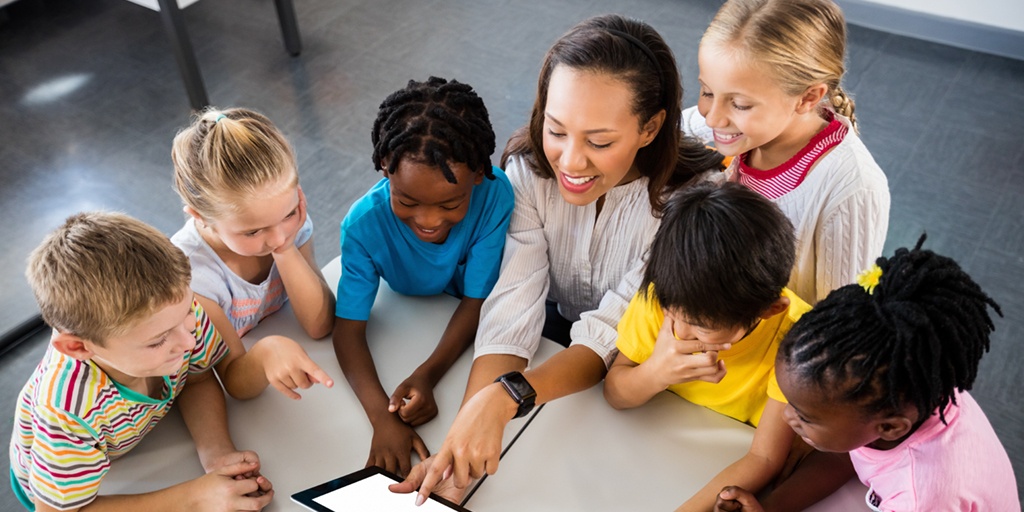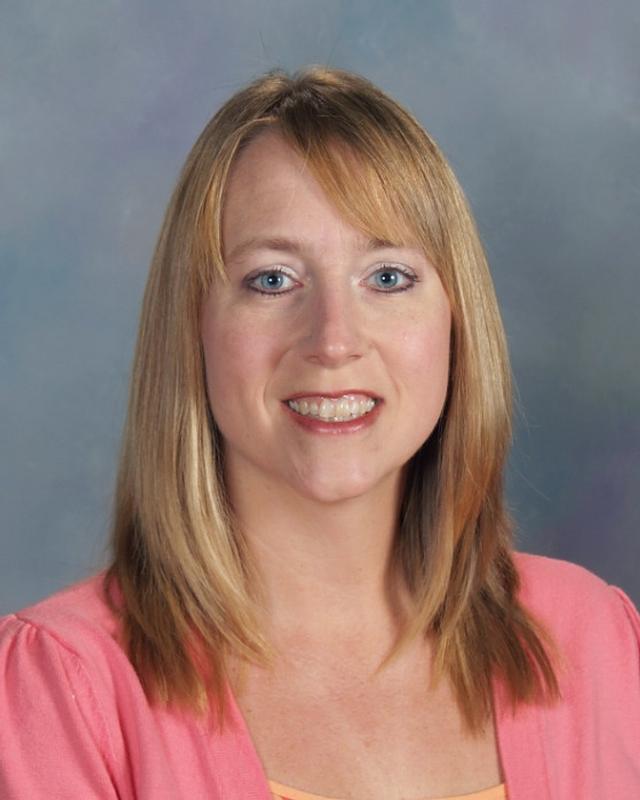
On September 24, my district had an in-service day. The homeroom teachers in my building were piloting a new writing program and were asked to attend a training. This left specialist teachers with nothing to do, as we would not need to be trained on this new program.
We were all wondering what our duties would be for the day when we received an email from our principal encouraging us to make arrangements to observe in another district for the day. She proceeded to help us find schools to host us—fellow teachers will understand why this was amazing. When do we ever have the time to go to other districts without painstaking measures of using personal days and arranging for subs? And how many of us have principals who understand the importance of observing others in our same content area?
Getting an Inside Look
With the help of my principal and a teacher friend, I had no trouble arranging to visit other classrooms. At my first school, I spoke with a fellow librarian and learned about her procedures. I saw her lesson plans for the day and helped her set up the classroom. I also spoke to her aide, who does the bulk of the check-out portion of library class. Just speaking with another librarian about how she runs her library was helpful, and I got a couple of new ideas as well.
Next, I spoke to the school’s computer teacher. She was open and enthusiastic, printing documents for me as we talked. I got to see the start of a kindergarten computer class and how she greets her students. Unfortunately I missed actually seeing the librarian in action, mostly because the computer teacher was so enthused and generous that I didn’t have the heart to interrupt her as she was sharing with me. Still, I got a good feel about how both classes are run, and my experience was extremely rewarding.
I then went to an elementary school in a different district where a friend of mine works. The librarian there taught a first-grade lesson on non-fiction followed by a second-grade lesson that required iPads and using Destiny, their library catalog. It was really interesting to see how her library space was set up and how different librarians handle lessons, seating arrangements, and check out. In addition, the catalog system I use is also Destiny, so it was good to see how other librarians teach that same system.
The Importance of Observation
All in all, my day of observation was great. I learned some new things, networked with folks in my content area, experienced different school environments, gathered some new ideas, and felt reassured that I am doing some things right. But mostly, I left feeling the weight of why observation is important. Let me explain:
- Observation is a great way to meet and collaborate with other educators. The educators I met on my day of observation were terrific. They were dedicated to their profession, kind, and willing to share. In my opinion, these traits are what the teaching profession is all about. We share our best lessons with others, give each other tips, and talk about our pitfalls. We teachers understand that we are in this thing together, so we share what we know with others.
- Observation awakens educators to new or different techniques. As educators, we sometimes get stuck in a rut—so busy planning and doing our daily tasks that we forget to think about new and innovative ways of doing things. Observation helps us see that there is more than one way (and perhaps an even more effective way!) to complete a task or teach an indicator.
At the first school I attended, I learned a simple trick in Destiny: How to add a note that says “Keep your books at school.” This is a visual reminder to the librarian (or a sub) to make sure the student doesn’t take his or her books home. I went right back to my school and tried this. And at the second school I attended, I saw a check-out system in which the kids checked out their own books. It’s not something I’m comfortable with doing, yet it seemed to work for that library. My observation helped me see and understand that different libraries use different techniques. We all find what works for us. That is what teaching is all about—adapting to your own group of students. - Observation also reinforces that we educators have many things in common. Sometimes when I’m planning a lesson, I think to myself, “How do other educators tackle this skill or indicator?” I doubt myself and wonder if I could be doing something differently. Yes, I could reach out to folks in my district, but due to time constraints, I sometimes don’t. I like seeing other teachers teach similar content and enjoy knowing that we are handling the skill in a similar way. When I talked with the computer teacher, I saw that she uses some of the same resources for teaching basic mouse skills to kindergartners. That helped me see that I am on the same page with other teachers. It doesn’t mean that I won’t keep trying to improve, but it is reassuring to see that our teaching techniques are also similar in many ways.
- Observation allows us to see how school districts are different. Again, we teachers often feel isolated or stuck in a rut. We are so in tune to the way our district does things that we forget there are other ways. When I observed in two surrounding districts—both of which are larger than mine—I saw how large vs. small districts are different. I don’t necessarily think one is better than the other, just different. The larger districts had more resources and more prepared lessons available for teachers. Our district doesn’t have as many of these resources, although we are trying to create them and share with one another. Technology also varies between districts. My district is going to one-to-one Chromebooks, while another district I saw uses iPads. The takeaway: There are many ways to get the same end result. All districts have the same goal, they just take different paths to get there.
- Meeting new educators reinforces how amazing the teaching profession truly is. Think about it: How many other vocations allow people to come and observe? It is no easy task to let someone come and watch you teach. Teaching is personal, and being observed is nerve-wracking, often distracting to the students, and time-consuming for the teacher. When I arrived at my first school, it was during the librarian’s plan time, but these teachers were so very gracious about letting me talk and observe. In fact, these teachers were more than happy to share their procedures and curriculum with me. This is what I love most about teaching—the collaboration and understanding that we are all working together to create effective learning experiences for our students.
My day of observation was a truly rewarding experience for me. I am grateful for the opportunity to see different educators doing their thing. This experience taught me that talking with other educators and watching them in action is an important component to becoming a better teacher myself. I know that scheduling is sometimes tricky, but I urge other schools and districts to allow observation as part of professional development.
Observation and networking with other educators helps us become more knowledgeable and productive. When we build a truly collaborative community of teachers from building to building and district to district, both teachers and students win.
Looking for teachers to collaborate, chat, and share lessons with? Consider joining an interactive teaching community like MimioConnect™!



